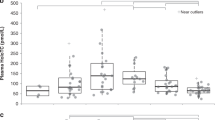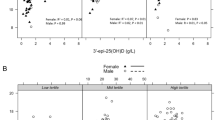Abstract
THE chemistry and biochemical function of vitamin B12 are at present the subject of intensive study. A feature which distinguishes this substance from other therapeutic agents is its effectiveness in very small amounts. While the amount which is adequate for the treatment of pernicious anæmia in relapse varies in individual cases, an initial dose of about 10 gamma (that is, 10−2 mgm.) is generally effective. The smallness of these effective amounts has aroused comment; but a simple calculation (as follows) shows that the quantities of B12 required appear to throw some light on its significance in the blood picture.
This is a preview of subscription content, access via your institution
Access options
Subscribe to this journal
Receive 51 print issues and online access
$199.00 per year
only $3.90 per issue
Buy this article
- Purchase on Springer Link
- Instant access to full article PDF
Prices may be subject to local taxes which are calculated during checkout
Similar content being viewed by others
References
Whitby and Britton, “Disorders of the Blood” (Churchill, 1946–49).
Author information
Authors and Affiliations
Rights and permissions
About this article
Cite this article
OCKRENT, C. Relation between Vitamin B12 and the Red Blood Cells. Nature 165, 280–281 (1950). https://doi.org/10.1038/165280b0
Issue Date:
DOI: https://doi.org/10.1038/165280b0
Comments
By submitting a comment you agree to abide by our Terms and Community Guidelines. If you find something abusive or that does not comply with our terms or guidelines please flag it as inappropriate.



